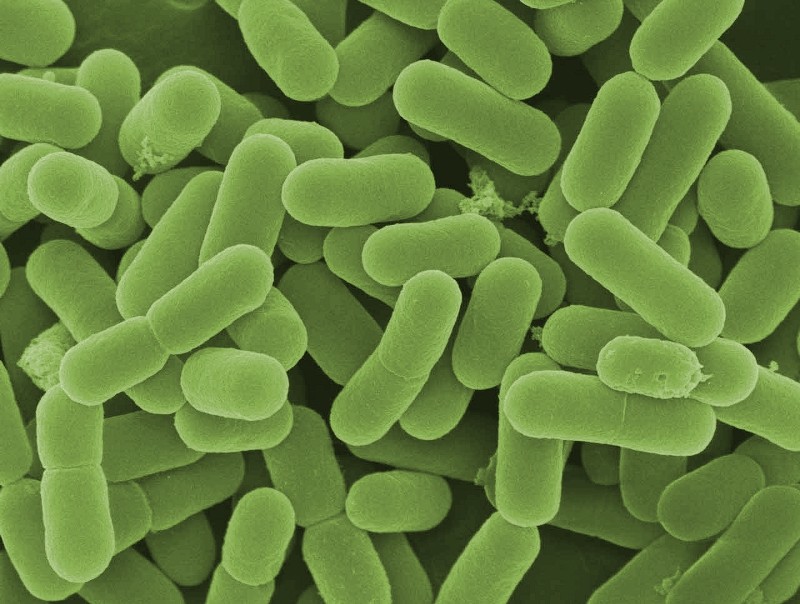Probiotics are the beneficial or good bacteria for the body. These bacteria (as well as others) are normal inhabitants of the large and small intestines. Probiotic bacteria inhibit the growth of harmful bacteria, promote good digestion, boost immune function, and increase resistance to infection. Research on probiotics proves that they also improve respiratory and allergy response and counter the negative effects of antibiotic use. Beneficial bacteria also produce vitamins and aid in the absorption of nutrients. Considering probiotics affect the absorption of nutrients into the body, it could be said that probiotics have an impact on ALL health conditions. Specifically though, the following conditions are known to show benefit from using probiotics:
- Diarrhea (including traveler’s)
- Vaginitis
- Yeast infections or Chronic Candidiasis
- Canker sores
- Crohn’s disease
- Eczema
- Food allergies
- Immune function
- Ulcerative colitis
There is a term-dysbiosis-which refers to an imbalance of good and bad bacteria in the intestinal tract. Dysbiosis can occur for any of the following reasons:
- Use of drugs i.e. Antibiotics, steroids, antacids, hormones and gastric acid inhibitors
- A diet high in fat and low in fiber
- Travel abroad (especially to developing countries)
- Dining out
- Drinking contaminated water
- Eating foods that are not organically grown
It is for these reasons and more that I recommend using a probiotic supplement to everyone. Whether you are a ninety year old or a 9 month old, I think probiotic supplementation is critical to overall health and wellness. I think it should even be part of the Dietary Supplement Pyramid (I just haven’t figured out where to place it). Most probiotic products are made up of multiple species of Lactobacilli or Bifidobacteria. Some of the Lactobacilli species are resident (live naturally in the digestive tract) and others are transient (pass through the digestive tract). Both resident and transient species are beneficial. My recommended strategy is to use a product that contains multiple resident strains (L. acidophilus, B. bifidum, B. longum or others) as well as specific, well-tested transient strains (L. casei, S. Lactis, S. thermophilus or others) to provide additional benefits.
What to look for in a Probiotic
Since these are bacteria, they are succeptible to the same harmful effects as any other form of bacteria. Stomach acid, heat, moisture and more all play a roll in the stability of your probiotic. If your probiotic is exposed to any one of these conditions it may be as effective as a glass of water. Recently on my radio program on Lime (Sirius Satellite channel 114) I have been getting bombarded with questions about probiotics in foods like yogurt vs. the ones found in supplements. The fact is that I don’t think you can truly get a medicinal health benefit from the probiotics found in your everyday diet. I also don’t think that the products that are in powders or most capsules will give you the desired effects you are seeking. With the advent of newer technologies to help these beneficial bacteria remain healthy and stable at room temperature and deliver them to the small intestine (bypassing the acid of the stomach) there is no need to even try and get your probiotics from foods. My favorite new technology is BIO-tract®. BIO-tract® gastric acid bypass technology incorporates a patented technology-LiveBac® Extended Shelf-Life Processing to help maximize the survival rate and deliver more of the beneficial bacteria to the lower part of your digestive tract-Small and Large intestine. In my opinion this technology is far greater than enteric coatings and other technologies currently available. An example of this technology is found in Renew Life’s Flora Smart.
Another popular shelf stable technology is the use of Pearls. This technology is a close second to BIO-tract®. The same concept of shelf stability and bypassing stomach acid are at play here too. Examples of these pearls are found in Enzymatic Therapy’s Acidophilus Pearls and Nature’s Way’s Primadophilus® Reuteri Pearls.
The amount of probiotics you need may vary depending on the many reasons listed earlier. I recommend at least two billion colony forming units (CFUs) per day. If you are using one of the shelf stable products I mentioned above, you will be assured you are getting the right amount and that they are being delivered to the small and large intestine intact.


